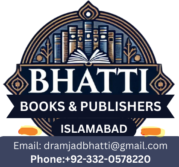Educational initiatives are crucial in combating gender biases in folklore and mythology. Schools and institutions can teach critical thinking skills that help students identify and deconstruct stereotypes in narratives. Furthermore, promoting diverse and inclusive storytelling can contribute to changing societal attitudes.
Educational initiatives aimed at combating gender biases in folklore and mythology have inspired proverbs and expressions that emphasize the importance of education and awareness in challenging stereotypes and promoting inclusivity. These proverbs underscore the role of critical thinking and diverse storytelling in reshaping societal attitudes. Here are some proverbs related to education and awareness:
1: Knowledge is the key to rewriting history:
This saying highlights the transformative power of education in challenging and reshaping narratives that perpetuate gender biases.
2: Informed minds, inclusive stories:
This proverb emphasizes that education equips individuals with the tools to recognize and advocate for more diverse and inclusive narratives.
3: Teach the next generation to question, not just accept:
This expression encourages educators to foster critical thinking skills that empower students to challenge stereotypes in folklore and mythology.
4: Awareness is the first step toward change:
This saying underscores the importance of raising awareness about gender biases and their impact on society.
5: Diverse narratives, inclusive minds:
This proverb celebrates the role of diverse storytelling in expanding perspectives and promoting inclusivity.
6: The pen is mightier than the stereotype:
This expression recognizes that through education and storytelling, stereotypes can be dismantled and replaced with more equitable narratives.
7: Change begins in the classroom:
This saying highlights the significance of educational institutions in shaping future generations’ attitudes and beliefs.
8: Empower learners; reshape narratives:
This proverb conveys the idea that education empowers individuals to challenge and contribute to the transformation of narratives.
These proverbs reflect the crucial role of education and awareness in challenging gender biases in folklore and mythology, emphasizing the power of informed minds and diverse narratives in reshaping societal perspectives.
Final Remarks:
Gender biases in folklore and mythology have deep historical roots and continue to shape societal perceptions of gender roles. These biases perpetuate stereotypes, reinforce gender inequality, and have a lasting impact on individuals’ mental health and well-being. However, efforts to challenge and subvert these biases are ongoing, with authors, scholars, activists, and educators working to create more inclusive and diverse narratives. By reexamining and reinterpreting folklore and mythology, we can contribute to the dismantling of harmful gender norms and promote greater gender equality in society.
